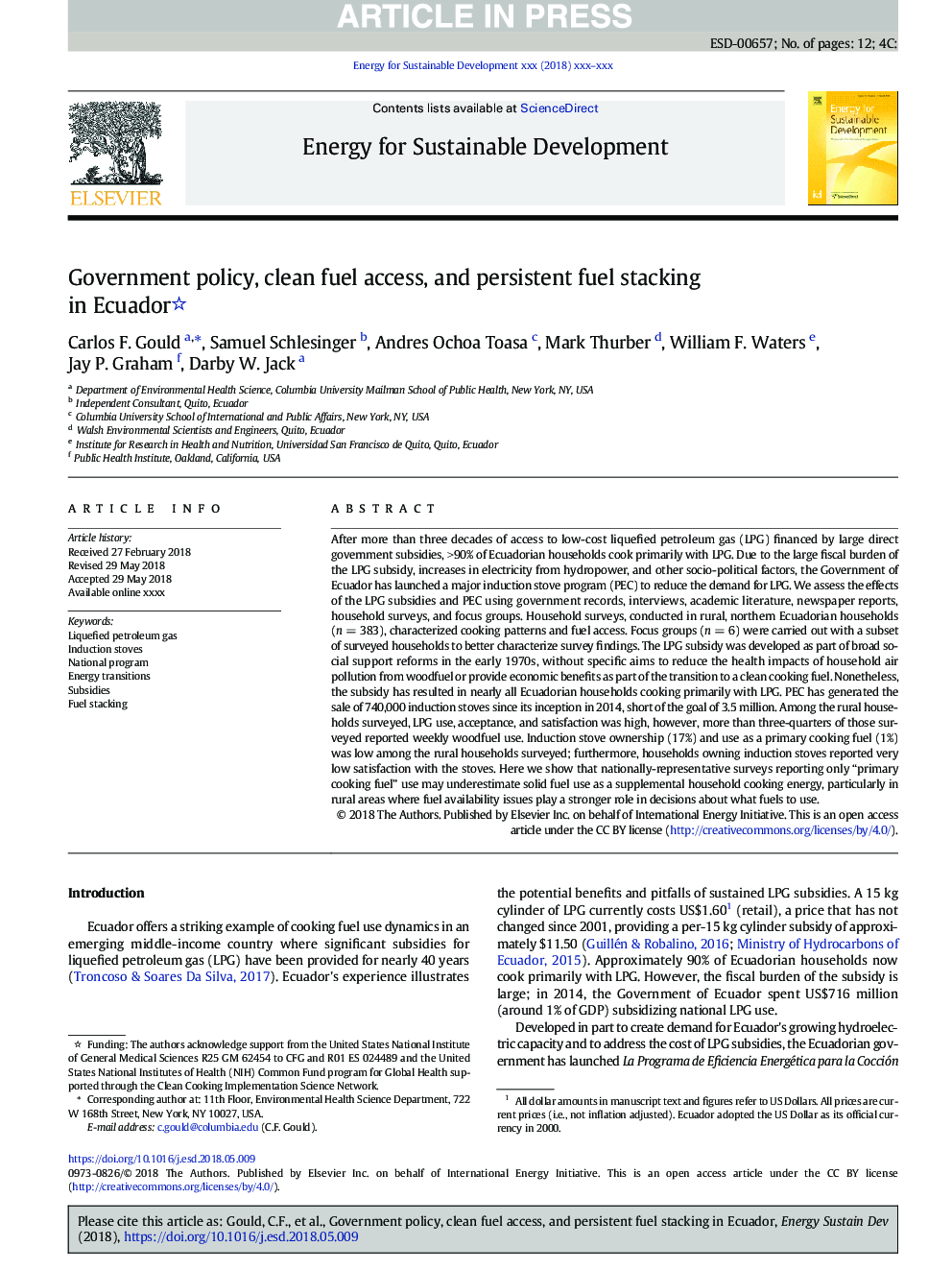| کد مقاله | کد نشریه | سال انتشار | مقاله انگلیسی | نسخه تمام متن |
|---|---|---|---|---|
| 7453470 | 1484384 | 2018 | 12 صفحه PDF | دانلود رایگان |
عنوان انگلیسی مقاله ISI
Government policy, clean fuel access, and persistent fuel stacking in Ecuador
ترجمه فارسی عنوان
سیاست دولتی، دسترسی به سوخت پاک و جمع آوری سوخت مداوم در اکوادور
دانلود مقاله + سفارش ترجمه
دانلود مقاله ISI انگلیسی
رایگان برای ایرانیان
کلمات کلیدی
گاز مایع، اجاق های القایی، برنامه ملی انتقال انرژی، کمک های مالی، جمع کردن سوخت،
موضوعات مرتبط
مهندسی و علوم پایه
مهندسی انرژی
انرژی (عمومی)
چکیده انگلیسی
After more than three decades of access to low-cost liquefied petroleum gas (LPG) financed by large direct government subsidies, >90% of Ecuadorian households cook primarily with LPG. Due to the large fiscal burden of the LPG subsidy, increases in electricity from hydropower, and other socio-political factors, the Government of Ecuador has launched a major induction stove program (PEC) to reduce the demand for LPG. We assess the effects of the LPG subsidies and PEC using government records, interviews, academic literature, newspaper reports, household surveys, and focus groups. Household surveys, conducted in rural, northern Ecuadorian households (nâ¯=â¯383), characterized cooking patterns and fuel access. Focus groups (nâ¯=â¯6) were carried out with a subset of surveyed households to better characterize survey findings. The LPG subsidy was developed as part of broad social support reforms in the early 1970s, without specific aims to reduce the health impacts of household air pollution from woodfuel or provide economic benefits as part of the transition to a clean cooking fuel. Nonetheless, the subsidy has resulted in nearly all Ecuadorian households cooking primarily with LPG. PEC has generated the sale of 740,000 induction stoves since its inception in 2014, short of the goal of 3.5 million. Among the rural households surveyed, LPG use, acceptance, and satisfaction was high, however, more than three-quarters of those surveyed reported weekly woodfuel use. Induction stove ownership (17%) and use as a primary cooking fuel (1%) was low among the rural households surveyed; furthermore, households owning induction stoves reported very low satisfaction with the stoves. Here we show that nationally-representative surveys reporting only “primary cooking fuel” use may underestimate solid fuel use as a supplemental household cooking energy, particularly in rural areas where fuel availability issues play a stronger role in decisions about what fuels to use.
ناشر
Database: Elsevier - ScienceDirect (ساینس دایرکت)
Journal: Energy for Sustainable Development - Volume 46, October 2018, Pages 111-122
Journal: Energy for Sustainable Development - Volume 46, October 2018, Pages 111-122
نویسندگان
Carlos F. Gould, Samuel Schlesinger, Andres Ochoa Toasa, Mark Thurber, William F. Waters, Jay P. Graham, Darby W. Jack,
